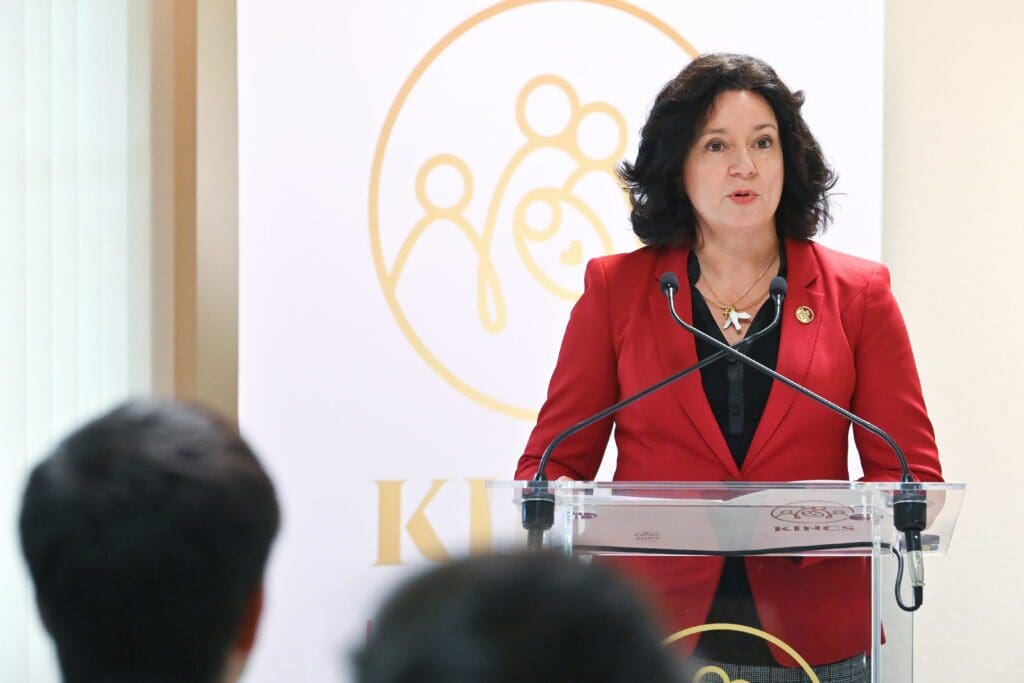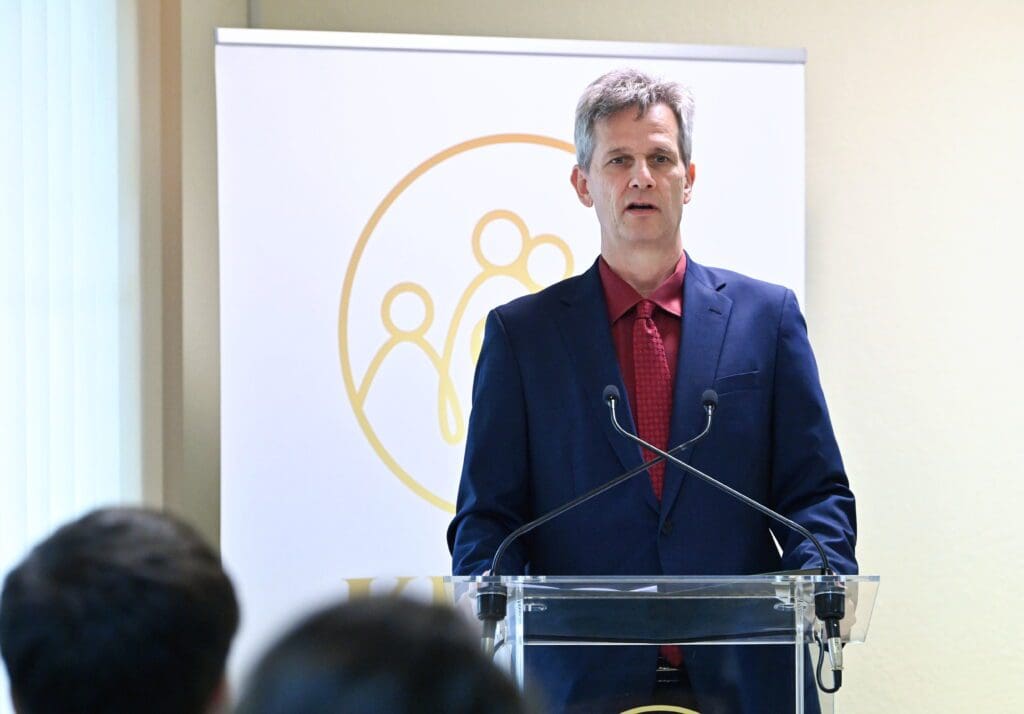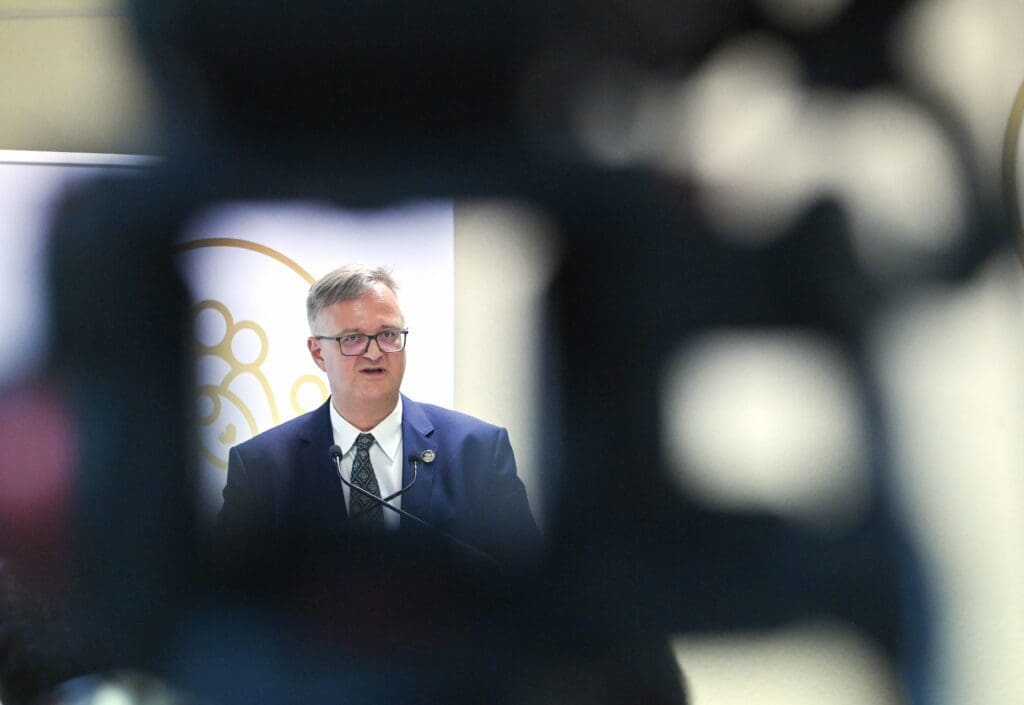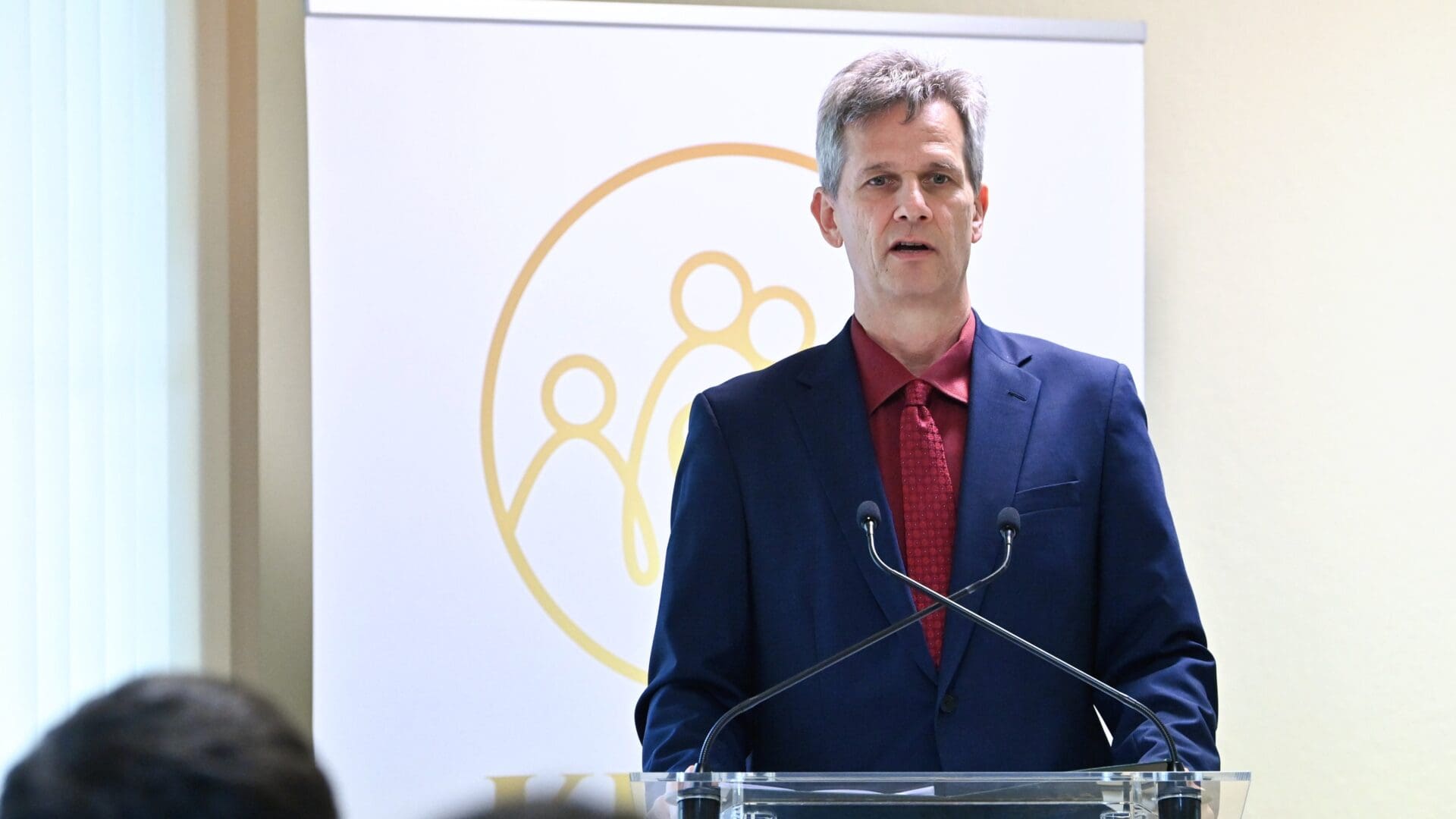On Monday, 15 May the Maria Kopp Institute for Demography and Families (KINCS) held a press briefing in Budapest to celebrate the International Day of Families that was created by United Nations (UN) in 1993 to honour the institution of the family and raise public awareness of family-related issues.
To begin, KINCS President Tünde Fűrész talked about families being the smallest building blocks of society, and therefore extremely important. She emphasised three phenomena that threaten families in the current age. The first is population decline. She said that with the fertility rates being low all over the world, in countries where the population numbers are rising, the growth stems exclusively from immigration, not from more children being born. She added that Hungary currently holds the 10th place regarding fertility in the EU. The second phenomenon is the crisis of values, she explained, adding that many are confused regarding familiar values. If one brings up the protection of families, there will be those who cite domestic violence in response. If one brings up child protection, some will counter with sexual rights, she emphasised. The third phenomenon, according to the President, is the series of crises stemming from the war and from the Covid pandemic.
Tünde Fűrész noted that 76 per cent of the EU population wants peace talks according to surveys. She remarked that Hungary is in a unique situation, being on the side of peace and trying to protect families at the same time.
She underscored that the Hungarian government’s family policy is a success story. The programmes implemented are being closely observed by many other countries, with some already implementing parts of them into their governance.

Deputy State Secretary for Family Affairs at the Ministry of Culture and Innovation of Hungary Attila Beneda explained that 15 May is a special holiday, but since 2010, every year is the year of families in Hungary. He added that the family support programmes in the country are still work in progress, as the government is working dynamically on introducing new schemes as soon as possible. He said that this year has already seen some new measures, such as mothers under 30 being exempt from personal income tax, and that there are other plans in the pipeline as well. He emphasised that while the crisis of the pandemic compounded by the crisis of the war has hurt many countries, families in Hungary were shielded from its consequences.
Attila Benda underlined the three main goals of the government regarding families. The first one is providing support to encourage child-bearing under the age of 30. The second one is to secure financial assistance to an extent where having a child does not lead to impoverishment, rather the opposite. The third goal, he said, is achieving a balance of work and family life, allowing mothers to decide when and how they want to return to the workforce after giving birth.
The deputy state secretary continued his remarks by emphasising the importance of health, both mental and physical. He said that the government has realised that due to the rapidly evolving technologies, many youngsters feel lonely and isolated, and in some cases develop depression. Focusing on the prevention of such adverse outcomes is also a government priority. In terms of the older generations, he underlined that there are about 250 thousand people with dementia in Hungary, and helping them is also imperative. To conclude, he said that the government is extremely committed toward strengthening families, with all of its measures aiming toward this goal, and declared that the only way to strengthen the nation is to strengthen families.

Head of Research at KINCS András Pári presented statistical figures, comparing Hungary and other countries regarding family policies and birth-rates. He explained that while in 2010 the number of marriages and the desire for having children reached a historic low, in 2021, the fertility rate was nearly 30 per cent higher, and the number of marriages doubled compared to 2010. Furthermore, Hungary has moved from being one of the worst-performing countries in the European Union to the middle field by showing the highest increase in both marriage rates and desire for childbearing during this period. In 2022, due to the uncertainties caused by the war and the sanctions, there was a minor decline, but far less significant compared to many other countries.
The number of abortions has also decreased dramatically, by nearly half over the past decade. While in 2005 there was one abortion per two births, this ratio decreased to only one abortion per four births by 2022. The increase in the number of marriages is also reflected in the proportion of children born in wedlock: the continuous declining trend of the previous decades was reversed by 2015. Having children as a married couple became a value again, as by 2022, some three-quarters, that is 73 per cent of children were born in wedlock, compared to just over half between 2013 and 2015. This trend contradicts the one observed in Europe, András Pári highlighted.

Deputy Leader of Strategy and International Affairs at KINCS József Árpád Mészáros spoke about how the international scene views Hungarian family policies. He explained that it is no wonder that seeing the statistics, Hungarian family policy serves as an example for several European countries, and many are interested in Hungarian solutions, elements of which have already been adopted in countries such as Poland or Latvia. In the United States, the student loan forgiveness for women who give birth is held in high esteem. Hungarian family policy is gaining more and more supporters worldwide, and even in the Far East there is an interest in it, Mr Mészáros stressed. He reiterated that contrary to the trends in the developed world, the fertility rate has increased in Hungary, and this is not due to migration but rather the result of predictable and active family policies. He emphasised that countries such as Poland, Latvia, Romania all implemented measures based on the Hungarian policies, adding that Italy is soon to follow suit as well. He underlined that one of the unique and important factors in Hungarian policies is the fact that the support for families is connected to employment and taxpaying, and adding that there is no upper-cap of income eligible for tax benefits, unlike in most other countries. Another example for the uniqueness of the Hungarian model is that in Hungary, support for children can be claimed from the moment they are foetuses. He concluded that these policies and solutions are creative and some of them have already become ‘Hungarikums’. Mr Mészáros remarked that the spreading of Hungary’s example is also an important goal of the administration.
There is no question that children represent the future, which is why supporting and protecting childbearing and child-rearing should be the most important tasks of governments in all countries. Luckily, this is so in Hungary, and with its dedicated work, KINCS contributes to achieving these goals, serving the needs of families.
Related articles:








